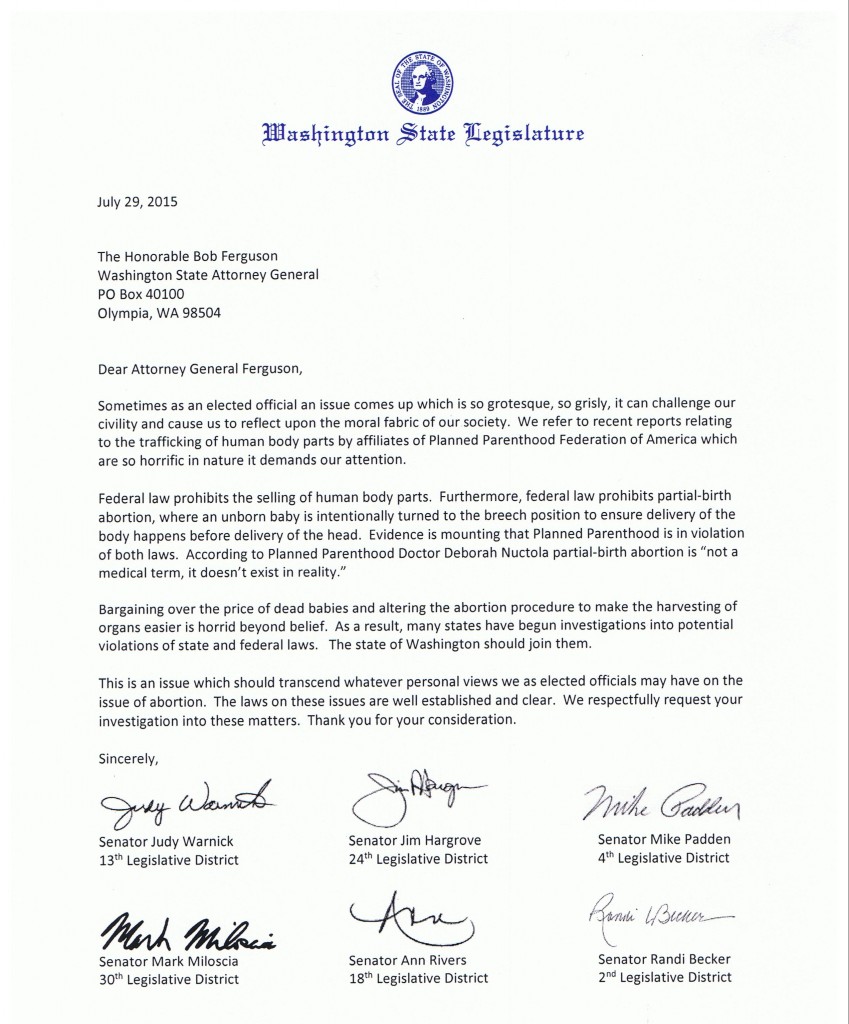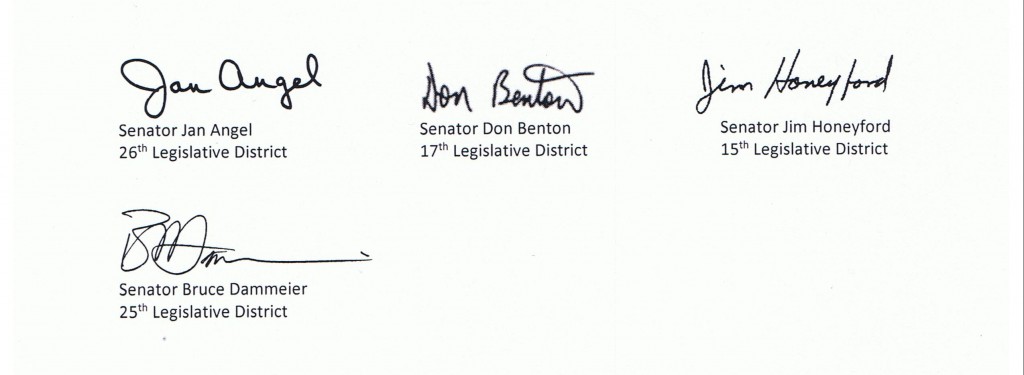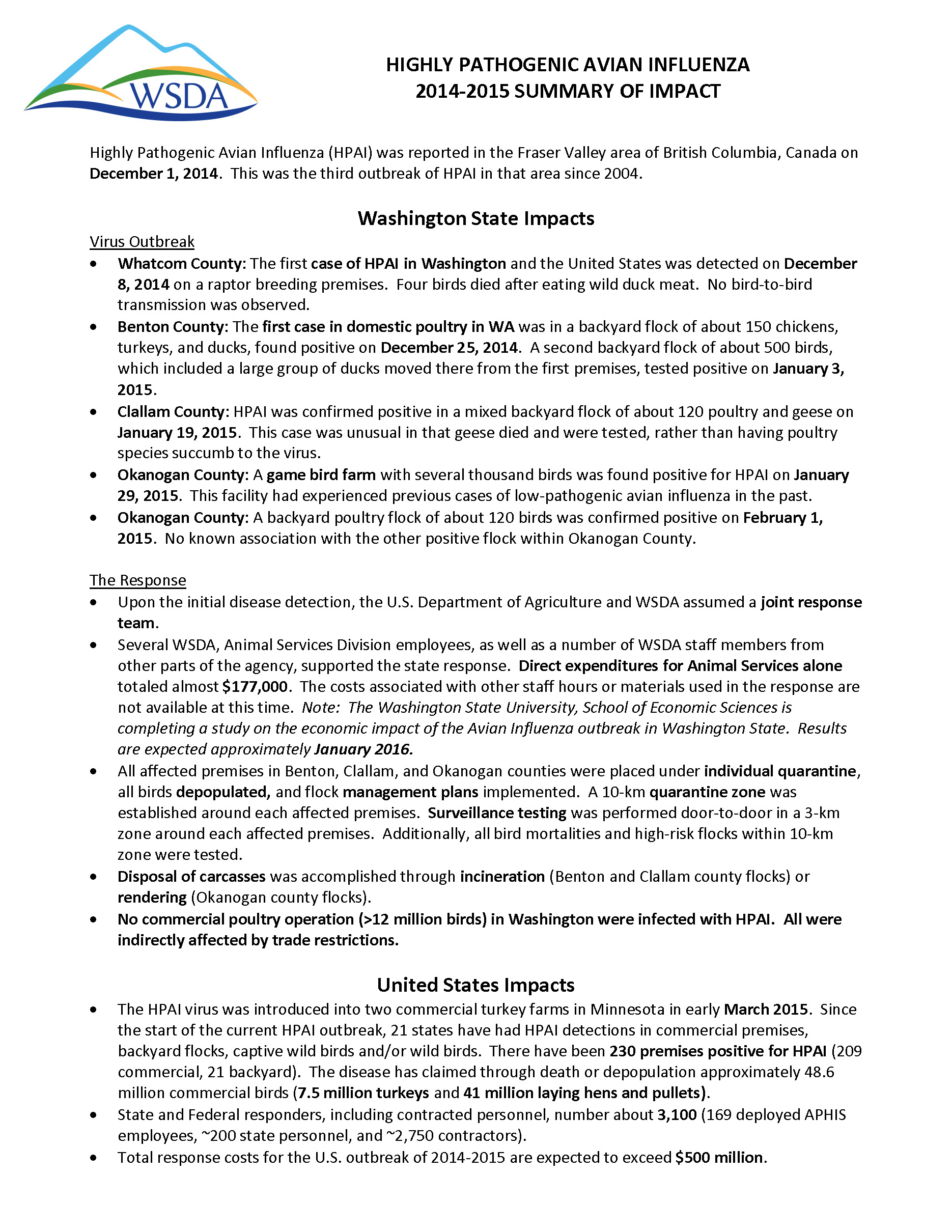
 Update from Olympia – October 1, 2015 |
Greetings,I hope that you have had a safe and fun summer. As fall arrives there is a lot going on throughout our area and in Olympia. I recently traveled with my House colleagues around our legislative district visiting local newspapers to discuss the recent court decisions on education as well as other issues facing our district and state.
Rep. Tom Dent and I speak with Editor of the Royal City Register, Ted Escobar over lunch
Recently the Supreme court issued two rulings. One places a fine of $100,000 a day on the Legislature (and ultimately taxpayers) for what the court views is a failure to adequately fund education. This is despite the fact that since the Majority Coalition Caucus began leading the Senate in 2013, the Legislature has invested $4.5 billion more in education. Education spending now makes up nearly half of the state’s budget. This ruling is concerning in that I believe the court has overstepped its authority. Our state constitution is clear that the legislative branch is responsible for making decisions on spending, not the judicial branch. The second ruling deemed voter-approved charter schools unconstitutional. This is simply an unfair decision to the thousands of students and parents who are already enrolled and excelling at new public charter schools. The court’s decision has been deeply criticized for its timing and lack of foresight which puts other successful education programs at risk as well. The state attorney general recently filed a motion for the court to reconsider its ruling and even former governor Christine Gregoire, who opposed charter schools, called the decision, “not right, not fair.” This particular case has raised many eyebrows because many of the justices that ruled in the majority received significant campaign contributions from the state teachers’ union who vehemently opposes school choice. I recommend you read a recent article about the case by clicking here.  Looking AheadAs the chair of the Senate Agriculture, Water and Rural Economic Development Committee, I am mindful of the challenges our state – and particularly our area – face when it comes to water access and quality. This year those issues are compounded even more by the severe drought that has affected every corner of our state, but has hit our agricultural communities in eastern Washington the hardest. While I’m grateful the Legislature approved emergency funds to assist communities across our state that are suffering,, the fact remains that money can’t replace needed water. Thankfully, our farmers and citizens have done an excellent job of preserving and protecting our water resources. I have been closely monitoring the state Department of Agriculture’s new push to increase inspections for dairies and farmers using manure as fertilizer aimed at preventing run-off and ground water pollution. This may be an example of unneeded, burdensome regulations. Just this past Monday the governor’s office issued a list of businesses they intend to target with a new tax on their carbon output. The list included McCain Foods, a local food processor in Othello. Why are they included in a list among industries like oil refineries and power plants? The fact is that our state will reach its goals to reduce carbon without these types of risky interventions that burden businesses and working families.  Around the District
Rep. Tom Dent, his wife and myself with a community member accessing the Citizenship Day in Moses Lake
In addition to meeting with our local newspapers, I recently attended an event at Big Bend Community College called the New Americans’ Citizenship Day. This was a free event to help current legal permanent residents apply for citizenship. Becoming a citizen is a lengthy and expensive process and this workshop provided help to immigrants seeking to achieve the American Dream by becoming citizens of our great country. The program is in part funded by the state Department of Commerce and was graciously hosted by Big Bend Community College. I commend these volunteers and the more than 70 people seeking to become American citizens from all over the world including Mexico, Denmark, and Argentina.  It is an honor to serve as your state Senator. Please don’t hesitate to contact me with questions regarding state government.
Sincerely,
Judy Warnick, 13th District Senator  Contact MeOlympia Office:103 Irv Newhouse Bldg. P.O. Box 40410 Olympia, WA 98504
Olympia Phone:360.786.7624 District Phone:509.766.6505
E-mail:
Website:Click here to visit my website.  Share my E-newsletterDo you know others who live in our district who may not be receiving my e-news updates? Please feel free to forward this e-mail invitation to them or click on the share button below. |
 |
Tag Archives: 13th Legislative District
Controversial abortion provider, Planned Parenthood, has again garnered national attention with the release of another undercover video that indicates the organization may be continuing to skirt federal law with illegal abortion practices and by selling human body parts.
The videos, four in all, appear to show conversations that could suggest the nation’s largest abortion provider may be performing partial-birth abortions to . According to Planned Parenthood doctor, Deborah Nuctola in one of the videos, partial-birth abortion is “not a medical term, it doesn’t exist in reality.” Her comments hint that practices within the organization are in need of increased scrutiny since, indeed, partial-birth abortions are against federal law.
Sen. Judy Warnick, R-Moses Lake, has rallied her fellow legislators to sign a letter to Washington State Attorney General Bob Ferguson requesting an investigation into the allegations. Warnick and nine other state Senators are asking the attorney general to investigate after a previous letter by other lawmakers sent to Gov. Jay Inslee was dismissed out-of-hand.
Please click here to read the full letter.
13th District legislators applaud no-new-tax bipartisan budget that cuts tuition, boosts teacher pay
The Legislature approved a new two-year operating budget Monday evening that makes historic investments in all levels of education, cuts tuition at state-run colleges and universities and provides increases in teacher compensation, without raising taxes. Senate Bill 6052 was approved by a vote of 38-10 in the Senate and 90-8 in the House in time to take effect tomorrow and prevent any suspension in government services.
“This budget is a great example of what we can accomplish when we work together,” said Sen. Judy Warnick, R-Moses Lake. “The Senate led with a basic principle: make higher education a priority. I am glad that our final budget demonstrates that with the first-ever tuition reduction in our state. This policy increases access to college for working families, easing the burden of student debt and tying future tuition growth to what families can afford.”
Education spending – meaning early learning, K-12 and higher education – climbs by 19 percent in the new budget, which puts $2.8 billion more specifically toward K-12 education. That will have K-12 districts receiving 47.5 percent of the state budget, a level not seen in 30 years.
“This is a very good budget that fully funds education, takes care of our most vulnerable citizens, and keeps our communities safe – while keeping the lid on taxes,” said Rep. Tom Dent, R- Moses Lake. “The budget makes historic investments in K-12 education, reduces K-3 class sizes, gives teachers cost-of-living adjustments, and makes major investments in early learning and the state’s mental health system.”
The budget invests in emergency drought funding, which is vital for the 13th District, and extends tax incentives for food processors and server farms, which bring significant revenue and jobs to the area.
“It is truly a great budget for the taxpayers of our state,” said Rep. Matt Manweller, R-Ellensburg. “Citizens will not be asked to pay a new carbon tax, cap-and-trade tax or capital-gains tax as proposed by the governor and Democrats. We accomplished all of these significant policy goals, investing in the people of our state, without raising taxes.”
A critical piece of legislation for Washington State’s economic health has been resurrected during the 2015 second special session. For two years Sen. Judy Warnick has been working to boost rural economic development. Wednesday the Senate approved Senate Bill 5442 which makes needed changes to the Community and Economic Revitalization Board requirements to improve competitiveness and spur economic growth.
“This is a priority issue for communities across the state,” said Warnick. “I am pleased that the Senate has made job creation and competitiveness for rural communities a priority.”
Last year, then Rep. Warnick’s bill passed both chambers of the Legislature only to be vetoed. That bill would have provided for 50 percent of the projects awarded to be exempted from the median wage provision. The version passed by the Senate allows for 25 percent of the jobs to be exempted from the wage provision.
“This legislation faced opposition when I brought if forward in the House and I’ve worked with stakeholders to find a solution,” Warnick said. “This legislation will mean more jobs for my district and communities statewide. Having more job opportunities as a result of the change in CERB policy is better than no jobs.”
The Board offers financing and grants to local jurisdictions but requires that entities receiving funding demonstrate that permanent private sector jobs created exceed the county median wage. This poses a problem for many rural areas with high paying industries in a portion of the county but other economically depressed areas in the same county.
The drought promises to have a significant effect on our state’s agricultural production, and the state House needs to support funding to help farmers.
By Judy Warnick
Special to The Times
THERE are many issues that faced the Legislature this year that have been subject to partisan differences and political wrangling. Ensuring that farmers across the state have the water they need to bring their crops to market should not be one of those issues.
In March, the governor declared a drought emergency for portions of the state and recently expanded that declaration to include the entire state. The state Senate responded quickly to this urgent problem by passing legislation during the first special session aimed at providing emergency drought-relief funding.
During public testimony, a bipartisan group of lawmakers from the Senate and House were informed that some irrigation districts are currently facing severely low water supplies. Gov. Jay Inslee’s declaration brought attention to the challenges many families, farms and junior-water-rights holders will face this year as a result of lacking water.
Bringing this issue to the general public’s attention, however, is not enough. This is especially true when large cities continue to highlight their water security, failing to recognize the statewide effects and… Click here to read the rest of the guest editorial in the Seattle Times.
Today, on the final day of the Legislature’s special session, the Senate unanimously voted to allocate $18 million to the State Drought Preparedness Account, allowing the state Department of Ecology to begin emergency drought response as soon as the bill is approved by the House of Representatives and signed into law.
Sen. Jim Honeyford, chair of the Water Supply During Drought Joint Legislative Committee, sponsored Senate Bill 6125 in response to the expanded statewide drought declared by the governor on May 15.
“As lawmakers we need to do everything we can to assist the state’s agricultural community. I’m hopeful that the House of Representatives will act quickly to get this bill to the governor’s desk,” said Honeyford, R-Sunnyside.
To be eligible for funding, municipalities or entities must be connected with a water source that will receive less than 75 percent of normal water supply and that lack of water will cause an undue hardship to the entity or fish or wildlife.
Sen. Judy Warnick, R-Moses Lake, who is chair of the Senate Agriculture, Water and Rural Economic Development Committee as well as a drought-committee member, added the situation “is a serious issue that we are all in agreement needs to be addressed. An important part of this bill is not just the financial aspect, but also requiring ecology to consider how it prioritizes resources.”
Should drought conditions not be declared in 2016, any unused funds will be transferred to the state’s Disaster Preparedness Account.

Update from Olympia – May 19, 2015 |
Greetings Friends and Neighbors,The special session is scheduled to conclude on May 28. Budget negotiators have been working to bridge gaps in the respective proposals for the state’s two-year operating budget. The governor released his budget in December which called for increased spending above existing resources by $1.5 billion. Since then, the state’s resource have increased by $1.1 billion. I have been consistent in my belief that we can meet the real priorities of state government, like education, without raising taxes. The recent news that revenues are again up nearly $400 million are further indication that the Legislature can budget within its means.  Session Successes
|
 |
















